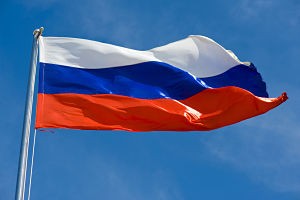
New Jersey Gambling License Renewal Deadline Approaching [...]

TRY THESE POPULAR GAMES:
- June 29, 2017 By Riley Wilson -

Russian gambling regulator temporarily blocks access to Google.ru.
Roskomnadzor has temporarily blocked access to Google this week, due to links leading to a banned online gambling website.
Many internet users were surprised on Thursday, when they lost access to Google.ru, while the reason was a redirect to a gambling domain pertaining to Russian bookmakers Fonbet.
The response of local internet service providers was swift, since many of them have automated systems used to block blacklisted domains. Many of the Russian ISPs quickly blocked access to Google.ru in order to avoid hefty fines.
A year ago, Google.ru was added on the Roskomnadzor blacklist of prohibited websites, and the leading search engine was given a year to remove or correct the redirect. Apparently, they made no effort to resolve the issue in the meantime.
However, after Roskomnadzor blocked access to the search engine, Google corrected the redirect in question. Soon, Russia’s strict regulator removed the domain from the blacklist, and soon the automated systems once again allowed internet users to freely access the world’s most popular search engine.
It surprises us that Google waited this long to remove the controversial redirect, since Roskomnadzor is probably the most strict of all the European regulators. Around 1,800 online gambling domains was added to its blacklist in just a week, from June 15-21, while 18% of those blocked domains were associated with Fonbet.
Russia’s internet blacklist came into effect on November 1, 2012, only a couple of months after the State Duma adopted the legal framework which enabled its creation.
This week, a new piece of legislation was approved, allowing Roskomnadzor to block mirror sites of blacklisted companies without a court permission for each individual domain. The new law was introduced back in February, and will come into existence on October 1.
Some of the means to bypass the ban and access the blacklisted websites include virtual private networks (VPS) and other systems, whose use could be further restricted with the new legislation considered by the Duma Committee on Information Policy, Information Technology and Communications
However, many were skeptical that the new legislation would achieve its goals, but nevertheless, the bill would soon face its second reading in the country’s legislature.